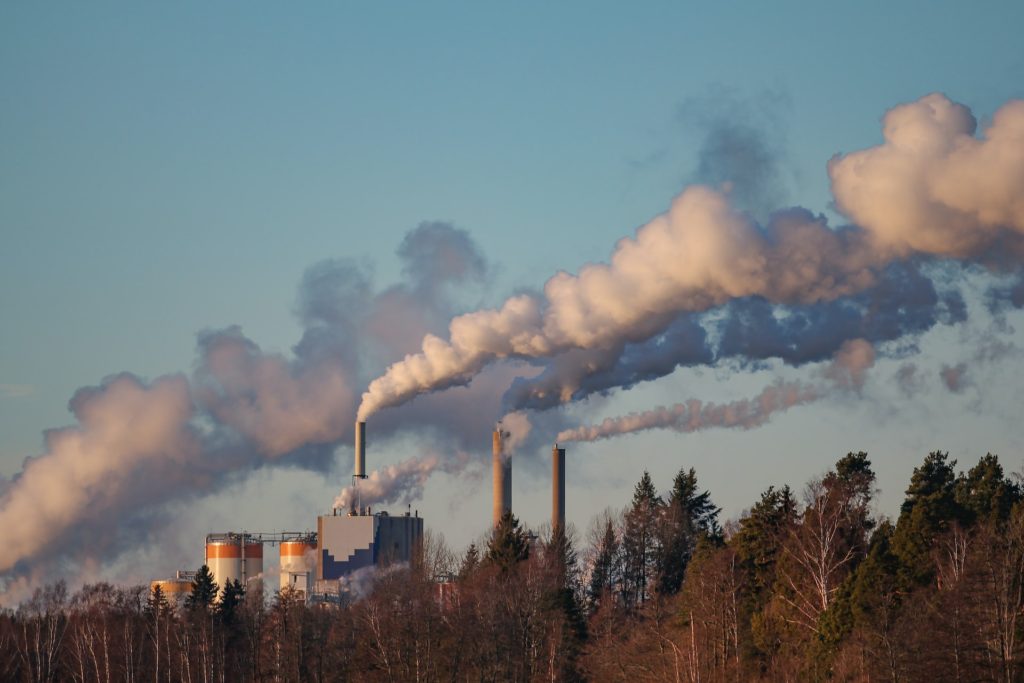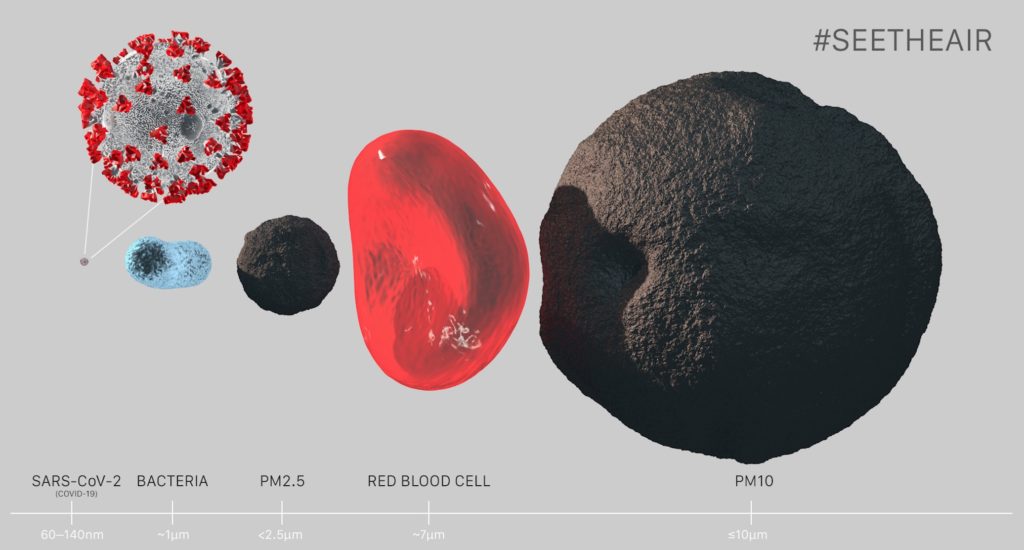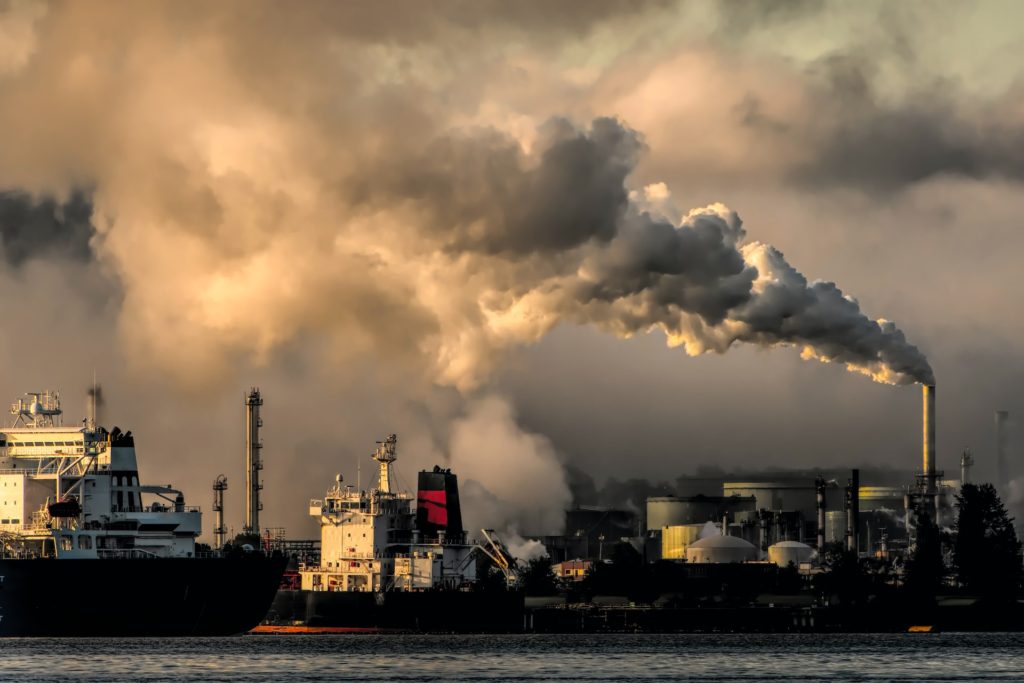Cover photo: Photo by Chris LeBoutillier on Unsplash
Today’s Focus of Attention is reader-supported. We sometimes include products we think are useful for our readers. If you buy through links on this page, we may earn a small commission.

Air pollution is one of the most serious environmental dangers to human health.
Indeed, the World Health Organization’s International Agency for Research on Cancer (IARC) labelled air pollution as carcinogenic in 2013.
In 2022, wildfires and the burning of coal, gas, and oil were the primary sources of airborne pollutants around the world.
Every year, about 7 million people die from air pollution, while billions suffer from the effects of the poor air quality they breathe.
Inhaling venomous air, whether it comes from the combustion of fossil fuels or wildfires, is linked to diseases from lung cancer and strokes to asthma.
In parallel, the economic cost of the financial system is enormous, estimated at $8tn.
Today’s article is about a report published by IQAir, a Swiss company that specialises in air purification products and services but also monitors air quality worldwide, providing real-time data and alerts for free.
Its goal is to raise awareness and empower a change in society while clearing the way to better air and a healthier planet.
World Health Organisation’s Air Quality Guidelines

These recommendations on air quality levels are aimed at protecting the health of the world’s population.
To create these standards, the WHO considered the following pollutants: particulate matter (PM), ozone, nitrogen dioxide, sulphur dioxide, and carbon monoxide.
Let’s focus on PMs today.
The health risks associated with PMs equal to or smaller than 10 or 2.5 microns in diameter (PM10 and PM2.5) are of particular public interest since they are capable of entering deep into the lungs and the bloodstream, resulting in cardiovascular and respiratory diseases.
According to the WHO, an average of 5 micrograms per cubic meter or less is considered acceptable. More than that exposes our bodies to danger.
80% of deaths associated with PM2.5 might be prevented if air pollution levels decrease to meet the WHO recommendations.
IQAir report

The 2022 World Quality Report showed that from 7,323 cities across 131 countries and territories analysed, only six countries — New Zealand, Finland, Estonia, Australia, Iceland, Grenada — and seven territories in the Caribbean and the Pacific complied with the WHO’s guidelines.
Chad — this year’s most polluted — India, Pakistan, Bahrain, Iraq, Burkina Faso, Kuwait, and Bangladesh had the worst quality air, exceeding by much the WHO standard with average contamination of over 50 μg/m3.
In the United States, the report found that, in general, air pollution improved in 2022 compared with 2021 because of a mild wildfire season.
But Coffeyville, Kansas, showed evidence of the poorest air quality in the US, perhaps caused by a nearby oil refinery.
At the same time, Columbus, Atlanta, and Chicago topped the list, along with Los Angeles, Sacramento, and other 10 cities in California.
China, which for decades had been ranking first on the table, continued to improve air quality, with nearly 64% of its 524 urban centres analysed showing a reduction in PM2.5.
But it doesn’t mean those places comply with the WHO guidelines, they don’t. It is just that they reduced the amount of pollution particles per cubic metre.
Information for the IQAir review was gathered from 30,000 monitoring stations and low-cost sensors operated by governmental bodies, research institutions, NGOs, private companies, and universities.
What is PM2.5?

The IQAir report focused on the presence of a fine particular matter per cubic metre, PM2.5, a type of air pollutant that has harmful effects on humans when inhaled.
PM2.5 is a microscopic particle coming from sources such as wildfires, dust storms, as well as from human activities such as the combustion of fossil fuels and industrial emissions.
These tiny particles go deep into the lungs and enter the bloodstream, increasing the risk of lung cancer, strokes, asthma, premature mortality, and other health and respiratory diseases.
Low and middle-income countries carry the heaviest burden, with over 90% of pollution-related deaths happening there, impacting the most vulnerable first, including children, pregnant women, and older adults.
Incomplete data
Even though the analysis looks at 131 nations and territories, it is not complete due to a lack of information, especially coming from Africa.
Compared with 2021, the coverage for Africa increased significantly since seven states were included in this new report.
Nevertheless, the deficiency in monitoring stations on the continent resulted in incomplete data, with only 19 out of 54 countries offering enough records from their collection sites.
The same holds true for South America and the Middle East; hence, those regions don’t have an accurate appraisal of their air pollution.
More data is needed

In an interview with CNN, Glory Dolphin Hammes, CEO of IQAir North America, said that when they add a country which once lacked air quality data, it ends up at the top of the most-polluted list.
She claimed governments tend to spend money in tools that fail to accurately measure fine particulate matter, and that’s one of the biggest barriers.
Hammes mentioned that we as a planet continue to have an unhealthy relationship with fossil fuels, which are responsible for the majority of air pollution we encounter on Earth.
Air quality is also worsened by wildfires fuelled by climate change, mainly in the US.
“Wildfires are very much so a global warming issue, and it is creating essentially unsafe conditions,” she added.
“Countries must learn from each other, noting that the countries with the best air quality are the ones taking on specific actions to transition away from polluting industries and into greener forms of energy, such as solar and wind.”
Another important aspect that could help in knowing what is happening in terms of pollution is expanding the monitoring networks, above all in disadvantaged regions.
“We need to collect more data. We need to inform folks of this information, and it does need to be free and available, so that they can make more informed choices.” Glory Dolphin Hammes said.
Conclusion
We are suffocating and killing ourselves. Well, we have a historical record of doing so.
The IQAir report highlights how important it is to take action to reduce pollution immediately and to transition to cleaner and more sustainable energy sources – hydrogen for instance.
Governments, companies, but mostly us, must collaborate to drive a change to reach a clean air environment that would not only benefit us in the short term but also the generations to come.
Or do you want your children and grandchildren to live in a dark post-apocalyptic world where the water, the air, and the land are tainted with smoke, plastic, and oil?
Let’s take action. Now is the time.
Please share your thoughts.


